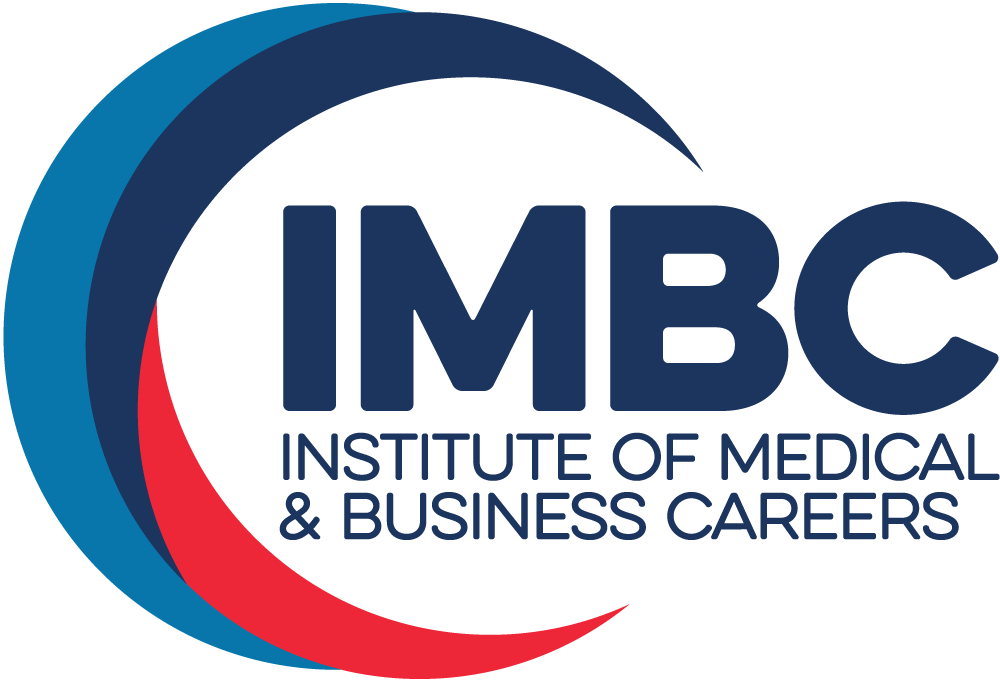Dental Assisting (Diploma)
Diploma in Pittsburgh, PA
Does assisting others come naturally to you? Do you have a knack for being kind and helping others feel at ease? If you smile at the prospect of working with patients to improve their lives and you want to offer a helping hand in a dental practice, then keep reading to learn more about IMBC’s dental assisting program in Pittsburgh, PA.
- Program Length: About a year1
- Format: On-Campus
- Course Length: 6 Weeks
- Average Class Size: 25 or Less
- Job Outlook: 38,700 New Jobs by 2028 – Much Faster than Average2
- Job Placement: 100%3
IMBC Student Stories

"I like the way I was treated from the moment I walked in the door! The instructors care about the students… they want to see us succeed!"
Keishia Davis, Dental Assisting (Diploma)
Dental assistants perform a wide variety of tasks, typically at a dental office. Day-to-day duties might range from providing patient care and taking x-rays to record-keeping and scheduling appointments. A dental assistant works with patients, dentists, hygienists, and other dental workers daily.
Dental assistants play an important role in the dental office, as they help patients remain comfortable and calm before, during, and after an exam or procedure. They also prepare patients for treatment, obtain and update medical records, take vital signs such as blood pressure, and provide patients with postoperative and aftercare instructions.
IMBC’s program will teach you to perform these duties as well as how to hand instruments and materials to dentists for a variety of procedures in a general dental practice, as well as in a specialty practice, such as oral surgery, pediatrics, orthodontics, periodontics, endodontics, and prosthodontics.
You’ll train in our large labs with actual dental equipment and tools and receive classroom instruction on-site by our experienced teachers.
You’ll learn how to prepare and maintain treatment rooms, dental laboratories, and instruments, following OSHA, CDC, EPA, and OSAP guidelines for sterilization and disinfection; proper mixing and manipulation techniques for a variety of chairside and dental laboratory materials; and how to expose and process dental radiographs.
You will become proficient in laboratory skills, including taking and pouring alginate impressions; articulating and mounting study casts; fabricating custom trays, mouth guards, and whitening trays; working on provisional crowns and bridges; and minor denture repairs.
Students at IMBC will be prepared to sit for the Pennsylvania Dental Radiology Exam. We incorporate a practical dental assisting review course into our program, so you will be familiar with the Pennsylvania State Board of Dentistry’s requirements and be able to anticipate a dentist’s needs.
Toward the completion of your program, you will participate in an internship that lets you practice your new skills in a real dental setting with professional supervision.
Finally, upon the successful completion of your program, you will be prepared to seek two nationally recognized certifications to demonstrate your mastery of the course material: the Nationally Registered Dental Assistant (NRDA) credential and the Radiation Health and Safety (RHS) exam, administered by the National Association for Health Professionals (NAHP) and Dental Assisting National Board (DANB) respectively. The cost of these professional certification exams is included in your program. Certification exams are not required for employment; however, students who pass voluntary third-party certification exams validate their competencies, skills, and abilities in the specialized field of study. IMBC believes students passing certification exams have a more competitive employment advantage for being hired over students with no certification.
Does this sound like a great program for you? Contact IMBC using the form on this page to learn more about enrolling today!
Top questions about the Dental Assisting Diploma training and career outcomes:
- What does a Dental Assistant do?
Dental assistants perform a wide variety of tasks, typically at a dental office. Day-to-day duties might range from providing patient care and taking x-rays to record keeping and scheduling appointments. A dental assistant will work daily with both patients and dentists as well as hygienists and other dental workers. Dental assistants play an important role in the dental office, as they help patients be comfortable and calm before, during, and after an exam or procedure; prepare patients for a treatment; obtain and update medical records; take vital signs such as blood pressure; and provide patients with post-operative instructions (also called after care). - What types of places does a Dental Assistant work at?
Dental assistants typically work at a dental office, specialty dental practice, or correctional facility. - Do Dental Assistants work with patients?
Yes, as a Dental Assistant, you’ll be working with patients every day. You’ll also likely work with dentists, dental hygienists, and other members of a dental practice. - How long is the Dental Assistant diploma program?
Most students will finish the Dental Assistant diploma program in under a year. However, your actual time will vary depending on your academic progress, success, the number of courses you take, and other factors. - What should I look for in a top school for Dental Assistant training?
Consider your options carefully by ensuring your school is accredited to make sure the program meets generally accepted academic standards. Look for a school that fits your schedule and work-life balance and can provide you the support you need, such as tutoring and career services. And finally, find out if your school will prepare you for taking any necessary certifications as well as cover those exam costs. - What is the internship for the Dental Assistant training program?
Toward the completion of your program, all students will participate in an internship that lets you practice your new skills in a real dental setting with professional supervision. Before beginning an internship, you will be required to provide proof that all of your immunizations are current. - What is the certification exam in the Dental Assistant program?
Students at IMBC will be prepared to sit for the Pennsylvania Dental Radiology Exam. We incorporate a Practical Dental Assisting Review Course into our program, so you will be familiar with the Pennsylvania State Board of Dentistry’s requirements and be able to anticipate a dentist’s needs. Upon the successful completion of your program, you will be prepared to seek two nationally recognized certifications to demonstrate your mastery of the course material: the Nationally Registered Dental Assistant (NRDA) credential and the Radiation Health and Safety (RHS) exam, administered by the National Association for Health Professionals (NAHP) and Dental Assisting National Board (DANB) respectively. The cost of these professional certification exams is included in your program.
Graduates of this program are prepared to seek entry-level employment as a Dental Assistant in the following types of organizations:
- Dental office
- Specialty dental practice
- Correctional facility
Some Dental internship and employer sites may require a criminal background check prior to attending the internship site or gaining employment. Please speak with your admissions representative prior to enrolling in this program if a background check presents an obstacle for you. Students may need to relocate to obtain gainful employment.
Students are encouraged to take these certification exams upon the successful completion of their program. The cost of these professional certification exams is included in your program. Certification exams are not required for employment; however, students who pass voluntary third-party certification exams validate their competencies, skills, and abilities in the specialized field of study. IMBC believes students passing certification exams have a more competitive employment advantage for being hired over students with no certification.
According to the U.S. Bureau of Labor and Education, it is expected that 38,700 new jobs in this field will be created between 2018 and 2028. As of 2018, there were approximately 346,000 people employed in this field.3
Learn about our school that students across the country have trusted for their training.
By submitting the information you have provided, you agree that IMBC or its authorized agents may contact you by phone, email, and text message via automated systems to provide you with information about training opportunities at the phone numbers you provided above, including any wireless number(s). You are under no obligation to consent to automated contact to enroll. Alternatively to submitting this form you may call us at 855.773.0758. Note that all calls are recorded for quality assurance.
By submitting the information you have provided, you agree that IMBC or its authorized agents may contact you by phone, email, and text message via automated systems to provide you with information about training opportunities at the phone numbers you provided above, including any wireless number(s). You are under no obligation to consent to automated contact to enroll. Alternatively to submitting this form you may call us at 855.773.0758. Note that all calls are recorded for quality assurance.
- This figure represents the typical length a program takes to complete. However, your actual program completion time may vary based upon your academic progress, course progression, and any breaks.
- According to the U.S. Bureau of Labor Statistics, 2018-2028: https://www.bls.gov/ooh/healthcare/dental-assistants.htm
- Reported ABHES placement rates for the 2021-2022 reporting year.
